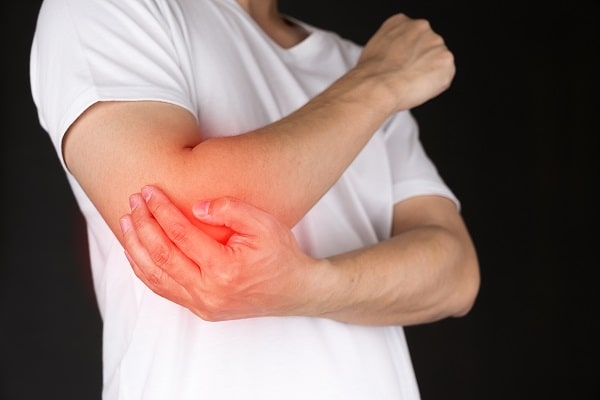
Tennis Elbow, medically known as Lateral Epicondylitis, is a condition characterized by pain in the tendons of the elbow. These tendons connect the forearm muscles to the outer side of the elbow. Repetitive movements and excessive use can cause small tears in these tendons, leading to damage and resulting in severe pain and stiffness in the elbow. Tennis Elbow typically affects the dominant arm, although it can rarely occur in both arms.
Homeopathy treatment for Tennis Elbow is recommended to manage pain and stiffness naturally, without invasive procedures. Homeocare International provides effective and natural Homeopathy treatment using constitutional remedies. Their professional Homeopaths also recommend specific exercises for quick pain relief.
At Wellness Homeo Clinic International, our skilled Homeopaths offer effective treatment for Tennis Elbow using Constitutional Homeopathy. This approach focuses on controlling pain and stiffness in the elbow without resorting to invasive procedures. Our treatment involves personalized homeopathic remedies and therapeutic exercises aimed at providing prompt pain relief.
The symptoms of tennis elbow, also known as lateral epicondylitis, typically include:
Tennis elbow, also known as lateral epicondylitis, is a condition characterized by pain and inflammation in the tendons of the forearm muscles that attach to the outside of the elbow. While the exact cause of tennis elbow is not fully understood, it is commonly associated with repetitive arm and wrist movements. Here are some common causes and risk factors:
Repetitive stress injury is a common cause of elbow pain and discomfort. It occurs when the muscles around the elbow are strained due to overuse. Any activity that puts excessive strain on these muscles can lead to this condition.
Tennis Elbow commonly presents with symptoms such as pain and tenderness on the outer part of the elbow. Discomfort is often experienced when extending the wrist or during gripping activities.
Upon receiving a tennis elbow diagnosis, it is crucial to prioritize rest and limit activities involving the affected hand. Avoiding heavy lifting and prolonged gripping of objects is recommended to facilitate the healing process.
To reduce the risk of developing shoulder problems, it is important to follow proper techniques and use appropriate equipment while engaging in sports activities. Avoiding repetitive tasks that strain the shoulder joint can also help prevent shoulder issues. Additionally, performing forearm exercises can strengthen the muscles around the shoulder and promote joint stability.
For acute pain lasting less than 72 hours, the R.I.C.E method can be employed. R.I.C.E stands for Rest, Ice, Compression, and Elevation. This approach involves giving your arm adequate rest and elevating it to reduce swelling. Applying ice and using compression can also help alleviate pain and promote healing.